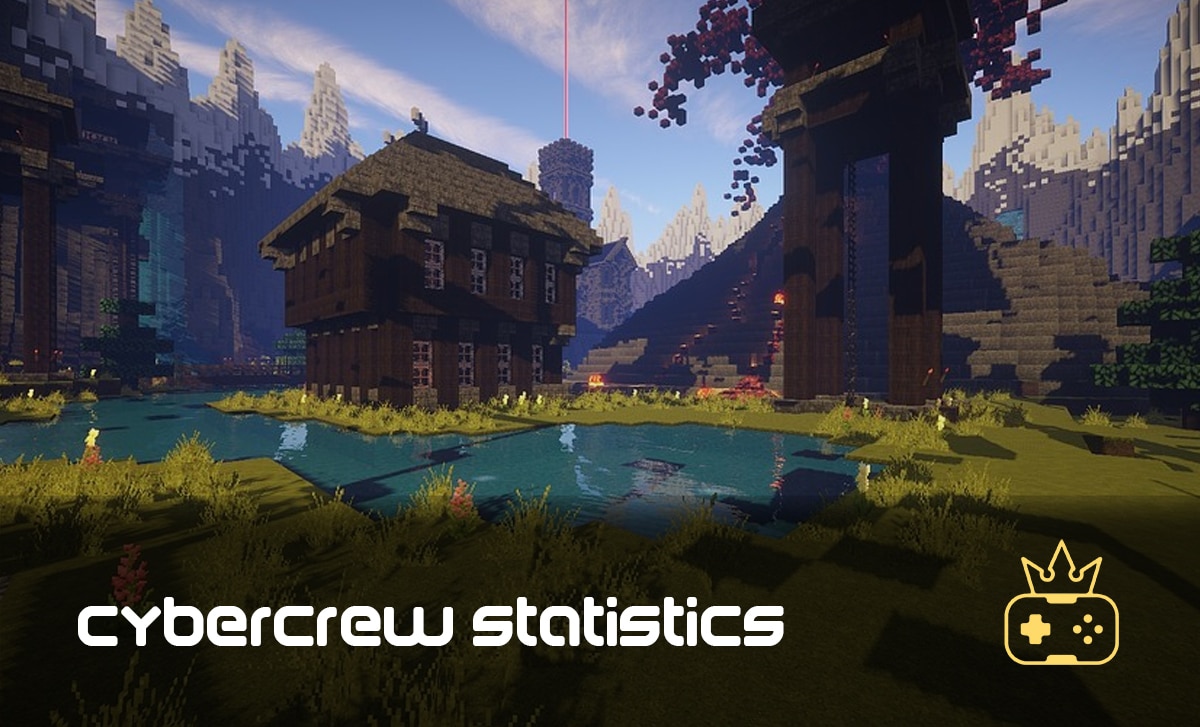What’s the Average Net Worth in the UK?
Last Updated: February 9, 2024
Let’s get straight to the point — the total amount of wealth in the UK is £12.8 trillion, with the median household net wealth being a little over £300,000.
Has it always been that much? To what extent did Covid affect the average net worth UK? What about the differences in net worth between age groups?
Stick around to find out.
Check Out the Top 10 Statistics We Picked for You:
- The average household net worth in the UK is £302,500.
- The average UK salary is £31,285, while the average net worth per person is £172,000.
- UK household wealth has tripled in the past 20 years.
- The largest component of the total wealth is the private pension wealth (42%).
- Property wealth accounts for 36% of the United Kingdom’s total net worth —about £4.6 trillion.
- People over 65 have the highest net worth in the UK.
- The average UK worker earns more than £1.1 million in their lifetime.
- The wealthiest region in the UK is the South East, whose median wealth has risen 43% since 2006.
- The wealthiest 10% of households hold 43% of all the wealth in the United Kingdom.
- The wealth of the richest 1% of households in the UK was more than £3.6 million per household on average.
Average Net Worth UK
Before we start, let’s just quickly explain net worth.
It is the value of the assets a person or a corporation owns (or, in our case, a country), minus the liabilities they owe.
The average UK household net wealth is £302,500, while the average Briton’s net worth is £172,000
As previously mentioned, the total wealth of the United Kingdom’s adult population is £12.8 trillion. This number is seven times the size of the country’s annual GDP.
The median household net worth has increased 20% since the financial crisis from 2007–2008.
So, how much are the Brits getting paid? According to Statista,
The average annual salary in the UK for full-time employees for 2021 is £31,285
Let’s not forget to consider the impact of Covid on the workforce. May it be losing the job, getting fewer hours, or being unable to work because of underlying health conditions, many people faced a decrease in their earnings compared to 2020 (pre-pandemic).
Let’s jump to the total wealth and what it consists of.
Total wealth is composed of four different types of wealth:
- Net financial wealth (savings or investments minus financial liabilities)
- Physical wealth (household contents, vehicles)
- Private pension wealth
- Net property wealth (value of residences minus mortgage debt)
The share of wealth accounted for by the four different types of wealth has remained stable in the latest period.
The UK household wealth tripled in 20 years
Household wealth in the UK has increased by almost £10 trillion in the past 25 years — from £4.9 trillion in 1995 to £14.6 trillion by 2017. This was primarily driven by falling interest rates, especially for pensions and housing, which account for most assets.
Physical wealth includes the estimated value of all household contents, including vehicles, land, furniture, property, appliances, and the whole array of satisfaction-generating physical goods.
Financial wealth and physical wealth made up smaller proportions of the UK’s total wealth, at 13% and 9%, respectively
After adjusting to inflation, the total private pension wealth in the UK was £6.1 trillion from April 2016 to March 2018, up from £3.6 trillion from July 2006 to June 2008.
The private pension wealth is the largest component of total wealth at 42%, up from 34% during the financial crisis from 2007–2008
The average UK pension pot stands at £61,897
The average UK pension is around £17,200 after taxes and housing costs
The number of individuals contributing to a personal pension increased to 10.4 million from 2017–2018.
Many people don’t have any clue how much is in their pension pot. They find it challenging to track their savings. Around 20% of Brits don’t know how much money they’ve tucked away in their pension pot. What’s more interesting is that the most uncertain was the group closest to retirement, with 24% being clueless as to how much they’ve saved.
Property wealth accounts for 36% of the United Kingdom’s total net worth, about £4.6 trillion
Property wealth increases with age. Makes sense, right?
It starts to grow around age 35 and reaches its peak — £180,000 when people enter retirement. By that time, many of them are homeowners who have paid off their mortgage debt.
Average Net Worth — Demographics
Many factors affect the average net worth, some more than others. Arguably, age is the most important one. Others include the economic status, region, and of course, the households. So let’s dive into each one separately.
The average UK worker earns more than £1.1 million in their lifetime
We are all well aware that wealth accumulates with age. Most of the time, when people enter the workforce, they start from the bottom and climb their way up the company’s ladder, during which they get promotions and, of course, a bigger paycheck. Getting more income allows them to invest more, buy properties, etc.
That explains the differences in wealth between people from different age groups in the table that follows.
Table 1. Average wealth by age in the UK per adult
| Average wealth per adult | Physical wealth | Property wealth (net) | Private pension wealth | Financial wealth (net) | Total wealth |
| 16–24 | £8,958 | £16,719 | £4,427 | £3,958 | £34,063 |
| 25–34 | £17,697 | £30,169 | £18,146 | £4,607 | £70,618 |
| 35–44 | £25,389 | £77,278 | £62,222 | £19,611 | £184,500 |
| 45–54 | £26,587 | £91,058 | £129,135 | £64,375 | £311,154 |
| 55–64 | £30,150 | £127,900 | £224,550 | £47,000 | £429,600 |
| 65+ | £34,688 | £170,563 | £163,000 | £64,438 | £432,688 |
Source: NimbleFins “Average Household Savings & Wealth UK”
The numbers in the table come from adjusting the data from ONS household wealth by the number of adults per household.
Speaking of households, more than 10% of them have a net worth of over £1 million. However, 21% of all households have a net worth of less than £50,000.
We will cover wealth inequality in the UK shortly.
The households with a head aged 55 years to under State Pension age have the highest median wealth — 25 times higher than those aged 16–24.
People over 65 have the highest net worth in the UK
It’s no surprise that when looking at the economic status, we notice that those households with a retired head are the wealthiest. Almost three-quarters of them own their home outright, compared with less than 30% of self-employed and less than 20% of employee-led households.
The households where the head is self-employed are the next wealthiest group. They come before the households where the head is an employee. However, the households with an employee head have a higher level of pension wealth compared to the households with a self-employed head.
Finally, the households with an unemployed/inactive head had only one-twentieth of the wealth held by the wealthiest group.
The region where people live and work has a tremendous impact on the average net worth of individuals and households.
The wealthiest region in the UK is the South East, whose median wealth has risen 43% since 2006
In March 2020, the median wealth in the South East was £503,400, while the average wealth in the North East was about one-third of this (£168,500), making the North East one of the two regions with the lowest median wealth.
The other one is Scotland. Both Scotland and the North East suffered a significant decrease in average wealth, with the North East seeing the biggest drop since 2006, reducing by 17%.
London holds 15% of all wealth in the UK, despite having the lowest property ownership rate and low participation in private pensions
When it comes to London, the Gini coefficients show that it has the most uneven distribution of total wealth, particularly physical wealth. Besides London, the regions with the lowest median income in the UK — Scotland and the North East, also had higher total wealth inequality.
On the other end of the spectrum of the Gini coefficients are the regions with higher median wealth — the South East and East of England. They had the lowest coefficients, which translates to them having a more equal wealth distribution in the UK.
Wealth Inequality in UK
We already mentioned that the total wealth in the UK stands at around £12.8 trillion. But how is this wealth dispersed between the country’s population?
The wealthiest 10% of households hold 43% of all the wealth in the United Kingdom
The wealth of the richest 1% of households in the UK (April 2018 to March 2020) was more than £3.6 million per household on average
At the same time, the bottom 50% of the households hold only 9% of all the wealth in the UK. The least wealthy 10% of households have a wealth of £15,400 or less compared to the £3.6 million.
For the least wealthy households, physical wealth was the main component, the same as for those households that found themselves in the middle of the distribution.
On the other hand, the top of the distribution’s largest component was pension wealth, with the top 1% holding an average household pension assets of around £2 million.
Financial wealth ranks last of all the total wealth’s components for most households.
The top 1% held more financial wealth than the entire bottom 80% of the population
Finally, based on the Gini coefficients, wealth in the UK is distributed more unequally than income. The wealth components with the greatest inequality were net financial, followed by the private pension. Physical wealth was the component with the lowest coefficient.
Impact of COVID-19 on the UK Average Net Worth
Since our new normal has become comparing everything before and during the pandemic, let’s see how the Coronavirus changed the game for the UK’s households and their pockets.
Don’t automatically assume that you’ll read bad news because
The UK household wealth rose to a record high during the Coronavirus pandemic
Despite the economy contracting, house prices and pension values continued to climb, resulting in an 8.4% growth of the median household net worth.
The biggest contributor to this rise came from a 7.3% increase in average house prices, followed by the risings in pensions and bank deposits.
A little light at the end of the tunnel?
Wrap Up
To answer your question, “What is the average net worth in the UK?” — £172,000. But then again, the numbers fluctuate depending on how old you are, your economic status, and who you live with.
The total wealth in the UK is estimated to be around £12.8 trillion, out of which the average household gets close to £300,000.
You’re also most likely to get paid more if you work in the South East and/or the East of England, so choose wisely!

![How to Sell on Depop in the UK [2024 Guide]](https://cybercrew.uk/wp-content/uploads/2023/06/Selling-on-Depop-UK.png)








